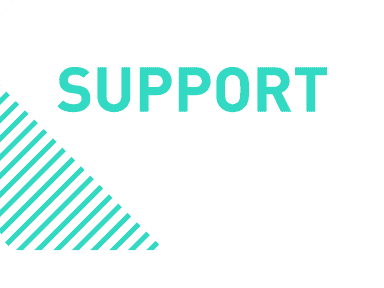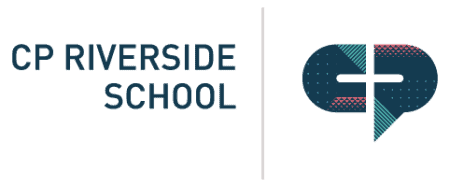SAFEGUARDING
Safeguarding is about ensuring that everyone is safe from harm.

CP Riverside School is committed to safeguarding and promoting the welfare and safety of all students and expects all staff and visitors to share this commitment. We ensure that consistent and effective safeguarding procedures are in place to support students, families and staff at school.
CP Riverside has policies and procedures in place to deal effectively with child protection and safeguarding issues, including, but not limited to tackling radicalization, extremism and honor based violence, together with concerns relating to abuse and neglect.
CP Riverside School recognises our moral and legal responsibilities to safeguard and promote student welfare. We provide a safe learning environment where every student and staff member feels valued and equal rights are respected.
Staff members receive annual training linked to the guidelines set out in the document – Keeping Children Safe in Education (KCSiE) and regular updates on local and national safeguarding concerns. All staff members are aware of the signs of neglect and abuse and are required to report any concerns to the Designated Safeguarding Leads (DSLs) at CP Riverside.
The Senior Designated Safeguarding Lead is Stef Smith (Assistant Principal) and the Designated Safeguarding Leads are Mark Eyre (Principal) Gemma Blacow (Assistant Principal) and Sarah Rothwell (Attendance, Family Support and Safeguarding Champion).
All concerns are logged on MyConcern and the DSLs act promptly on any reported concern and will liaise & collaborate with external agencies to ensure the safety of all students. Student attendance is monitored closely and concerns are shared, as appropriate, with parents/carers and any other relevant and appropriate organisations.
To promote a safe environment for students, CP Riverside School employs a strict selection and recruitment policy which includes all statutory checks on staff and regular volunteers including Enhanced DBS (disclosure and barring service) checks.
Link to Safer Recruitment Policy
If you have any serious concerns about your child, another student or a member of staff at CP Riverside, please do not hesitate to contact one of the Designated Safeguarding Leads (DSL) who will be able to provide you with the best advice and help using the appropriate degree of confidentiality.
If you are concerned about the immediate safety and welfare of a child, you have a duty of care to act without delay. Contact the police by calling 999.
Below are some useful information links to external organisations:
NSPCC: What is child abuse?
Child abuse is any action by another person that causes significant harm to a child or young person. The four main types of abuse are: Physical abuse (eg hitting, kicking, punching); Emotional abuse (a child is denied love or affection or is constantly threatened or humiliated); Neglect (a child’s basic needs of food, safety, warmth, medical attention and education are not met by those caring for them); Sexual abuse (a child is forced or manipulated to take part in sexual activities.
National Crime Agency – County Lines
This is a term used to describe organised networks involved in exporting illegal drugs into one or more areas within the UK, using dedicated mobile phone lines or other forms of “deal line”. Children and young people are often exploited to move and store money and drugs.
Online Safety Information for Parents of Teenagers
Internet Matters explores some of the ways in which parents can help to keep their teenagers safe when using the internet.
Know About CSE
This is a crime that can happen to any young person under the age of 18, regardless of gender, sexuality, culture or religion. CSE is when a young person is used by being made or manipulated into doing something sexual or is groomed.
Young Minds Self-Harm Support
Self-harm is when a person hurts or harms themself deliberately. This can include cutting, burning skin, scratching, hitting or taking harmful substances. People usually engage in self-harm because something feels wrong or as a way of managing a problem.
Change, Grow, Live
CGL Jigsaw supports young people up to the age of 18 with their drug and alcohol use. Their service is free and confidential and support is given through one-to-one sessions, peer support and group work. They also support families, carers and friends.
Internet Matters – Radicalisation
Radicalisation is a process by which a person comes to support, adopt or be involved in extremist political, religious or social ideologies. It can result in a person becoming drawn into terrorism and is in itself a form of harm.
Female Genital Mutilation (FGM) NSPCC
FGM is any procedure that intentionally alters or causes other injury to female genital organs for non-medical reasons. It can seriously harm a girl’s health in the long term. It is a form of abuse and is illegal in the UK.
www.thinkuknow.co.uk
Child Exploitation and Online Protection Agency (CEOP) and ThinkuKnow Guide to Internet Safety
www.iwf.org.uk
Internet Watch Foundation (IWF)
www.saferinternet.org.uk
UK Safer Internet Centre (comprises SWGFL, IWF and Childnet)
UKCCIS
UK Council for Child Internet Safety – ‘Click Clever, Click Safe’
UKCCIS
Advice on Child Internet Safety
www.barnardos.org
Barnardos
www.childline.org.uk
Childline
www.childrenssociety.org.uk
The Children’s Society
www.nspcc.org
The NSPCC National Child Trafficking Advice and Information Line (CCTAIL)
www.nspcc.org.uk
NSPCC Inform


